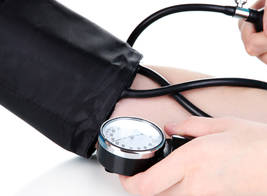Low blood pressure, also known as hypotension, is often viewed as less concerning than high blood pressure, but it can have significant health implications. Understanding what causes low blood pressure can help identify underlying health issues and improve quality of life. This article explores the various causes of hypotension, supported by the latest statistics and insights from medical research.
How Common Is Low Blood Pressure?
While the majority of adults are more familiar with high blood pressure (hypertension), hypotension is also a prevalent issue. An estimated 3% of the adult population in the United States deals with chronic low blood pressure. It is particularly common among older adults, where approximately 10% of individuals over the age of 65 experience regular symptoms of hypotension, including dizziness and fainting.
| Age Group | Prevalence of Low Blood Pressure (%) |
|---|---|
| 18-30 | 1-2% |
| 31-50 | 2-3% |
| Over 65 | 10% |
Primary Causes of Low Blood Pressure
The causes of low blood pressure can be quite varied, ranging from simple dehydration to complex health conditions. Below is an exploration of the most common causes.
1. Dehydration
Dehydration occurs when the body loses more fluids than it takes in, reducing blood volume and leading to lower blood pressure. It is one of the most common and easily overlooked causes of hypotension. Even mild dehydration can lead to symptoms like dizziness and fatigue, which can become more severe if untreated. Staying hydrated is crucial, particularly for older adults who may not feel thirsty as often.
2. Heart Problems
Certain heart conditions can cause low blood pressure, including bradycardia (a slow heart rate), heart valve issues, and heart failure. When the heart is unable to pump blood effectively, the reduced output can result in hypotension. This is particularly dangerous, as low blood pressure can lead to insufficient blood flow to vital organs.
3. Endocrine Disorders
Problems with the body’s hormone-producing glands can significantly affect blood pressure. For example, adrenal insufficiency (Addison’s disease) or an underactive thyroid (hypothyroidism) can cause low blood pressure. These conditions reduce the amount of hormones that regulate blood pressure and fluid balance, leading to persistent hypotension.
4. Medications
A wide range of medications can cause low blood pressure as a side effect. Common culprits include beta blockers, which are prescribed for high blood pressure or heart problems, and diuretics, which reduce fluid levels in the body. Certain antidepressants and medications used to treat Parkinson’s disease are also known to lower blood pressure.
5. Orthostatic Hypotension
Orthostatic hypotension refers to a sudden drop in blood pressure when standing up too quickly. It is often caused by prolonged bed rest, dehydration, or certain medications. This condition affects about 20% of people over the age of 65, leading to dizziness, lightheadedness, and an increased risk of falls.
6. Nutritional Deficiencies
Lack of essential nutrients, particularly vitamin B12 and folate, can lead to anemia, reducing the volume of red blood cells and resulting in lower blood pressure. Ensuring a balanced diet rich in essential vitamins and minerals can help maintain healthy blood pressure levels.
| Cause | Typical Symptoms |
|---|---|
| Dehydration | Dizziness, fatigue |
| Heart Problems | Chest discomfort, fainting |
| Endocrine Disorders | Fatigue, muscle weakness |
| Medications | Drowsiness, dizziness |
| Orthostatic Hypotension | Lightheadedness when standing |
| Nutritional Deficiencies | Fatigue, pale skin |
A Closer Look: Dehydration and Low Blood Pressure
One well-documented case involved a 70-year-old woman who was hospitalized after experiencing repeated fainting spells. It was determined that her chronic low blood pressure was due to persistent dehydration combined with diuretic use. This combination significantly reduced her blood volume, leading to severe hypotension. After increasing her fluid intake and modifying her medication, her symptoms improved considerably.
Dehydration, especially among older adults, can easily be overlooked. Many individuals do not feel thirsty until they are already significantly dehydrated. This is why regular fluid intake is essential, particularly for those on medications like diuretics.
Modern Trends and Hypotension Management
The approach to managing low blood pressure has shifted in recent years, with a stronger focus on personalized treatment. For those with orthostatic hypotension, lifestyle changes such as wearing compression stockings and increasing salt intake (under medical supervision) have proven effective. Additionally, staying hydrated and avoiding prolonged standing are common recommendations.
In terms of medication, midodrine is a commonly prescribed drug used to treat symptomatic hypotension. Its cost ranges from $20 to $50 per month, depending on dosage. Many patients also benefit from fludrocortisone, a medication that helps the body retain sodium, thereby increasing blood pressure. Fludrocortisone costs approximately $15 to $30 per month.
Complications of Low Blood Pressure
Advice from Our Editorial Team
If you experience symptoms of low blood pressure, such as dizziness, fainting, or persistent fatigue, it’s important to consult your healthcare provider. They can help identify the underlying cause and recommend appropriate treatment. Simple changes, such as staying well-hydrated and monitoring your nutrient intake, can make a significant difference. Always be proactive about your health, and seek medical advice if symptoms worsen or persist.
Understanding the causes of low blood pressure can help you take the necessary steps to maintain stability in your health. Stay informed, stay hydrated, and consult professionals when needed.









